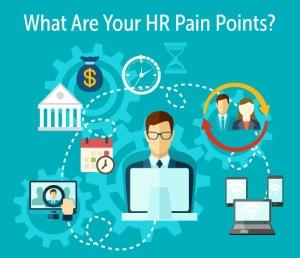- Beneficios para empleados
- Artículo
- Lectura de 6 minutos
- Last Updated: 07/31/2023
What To Know About Offering Benefits To Part-Time Employees

Table of Contents
Determining what benefits to offer part-time employees can be confusing for small business owners. Due to minimal federal laws and regulations on the matter, U.S. employers often have some flexibility when deciding what employee benefits to offer their part-time workers. However, employers should also ensure they understand and comply with applicable state and local laws and regulations.
What Is Part-Time Employment?
In general, part-time employment is work in which an employee's scheduled hours fall below the employer's requirements for a full-time position. The exact number of minimum hours worked for part-time status may vary from business to business.
Are There Minimum Hours for Part-Time?
A minimum of 20 hours per week is common, although the Bureau of Labor Statistics' Economic News Release describes part-time employees as individuals working one to 34 hours per week. Note that the Fair Labor Standards Act (FLSA), the federal wage and hour law, does not define part-time or full-time status.
Are There Maximum Hours for Part-Time?
There are no set requirements for the maximum number of hours for part-time status. As previously mentioned, the FLSA doesn't have any parameters around part-time status. It's generally the employer's responsibility to set their policy on the maximum hours for a part-time worker, although the maximum number of hours should be less than those of a full-time employee.
Are Part-Time Employees Entitled to Benefits?
Part-time employees may be eligible for certain statutory benefits such as workers compensation coverage. Companies may choose to only offer certain fringe benefits. For some companies, a comprehensive fringe benefit package, or a carefully constructed reduced benefits package may help to attract and retain part-time workers.
Part-Time Employee Benefit Requirements
Federal, state and local laws may require employers to offer certain benefits to workers considered to be part-time under the employer's policies. Workers' compensation insurance coverage must be extended to all employees as anyone may suffer an injury on the job, no matter how many hours they work. Depending on the number of hours an employee works, employers may also need to offer retirement and health benefits to employees they consider to be part-time. The Family and Medical Leave Act (FMLA), a state or local paid family and medical leave program or earned sick leave requirement may also mandate specific benefits for employees who are considered to be part-time by their employer but who meet the requirements under the law. In general, employers should review applicable laws when developing their benefits offering to part-time employees.
Common Benefits for Part-Time Employees
Small business owners have some freedom to craft their own policy regarding part-time employee benefits, except where applicable law dictates otherwise. An enhanced benefits package for part-time employees may entice these workers away from competitors and help improve employee engagement and retention.
Here are a few benefits to consider offering to your part-time employees when developing your company's policy.
Health Insurance
Even if health insurance is offered to full-time employees, small business owners may choose not to offer this benefit to part-time employees. However, extending healthcare coverage to part-time employees may be viewed as an extra perk of employment.
Note that the Affordable Care Act (ACA) doesn't require that employers provide health insurance. However, under the ACA's employer shared responsibility (ESR) provisions, employers with an average of at least 50 full-time equivalent employees during the prior calendar year must offer adequate and affordable health insurance to full-time employees and their dependents or risk a potential assessment if one or more full-time employees receives a premium tax credit. For ESR purposes, a full-time employee averages 30 or more hours of service a week or 130 hours of service in a month. Given the lower hours of service requirements, some employees that companies consider part-time might fall under the ESR provisions.
Retirement Plans
Under the Employee Retirement Income Security Act (ERISA), business owners are required to include part-time employees in qualified retirement plans (including 401(k) plans) in certain circumstances. Like health insurance benefits, retirement plan eligibility for part-time employees depends on the number of hours worked. The IRS and ERISA specify that an employee who works at least 1,000 hours in a 12-month period is eligible to participate in a qualified retirement plan, as long as they meet the age requirement stipulated in the plan document (max age 21).
Additionally, the SECURE Act includes a provision whereby employers are required to offer 401(k) plan participation to long-term, part-time employees. Those employees must work at least 500 hours per year for a period of three consecutive years and be 21 or older to be eligible. Hours are required to be counted beginning January 1, 2021, so the first year a part-time employee would be able to contribute is January 2024. Further, the SECURE Act 2.0 expanded long term-part time eligibility by reducing the service requirement from three years to two years during which the individual works 500 hours each year. The rule only applies to employee deferral eligibility; these employees may still be excluded from employer contribution allocations.
Unemployment Benefits
Part-time employees are entitled to unemployment benefits as determined by the state in which the business operates. Whether a part-time employee receives unemployment benefits sometimes depends upon the hours worked within the last year, wages earned within a certain time period, and if they were laid off, fired, or quit. A business owner might also need to be enrolled in the state's unemployment insurance program.
Choose your state below for information about state unemployment benefits, forms, and details.
Alabama
Alaska
Arizona
Arkansas
California
Colorado
Connecticut
Delaware
District of Columbia
Florida
Georgia
Hawaii
Idaho
Illinois
Indiana
Iowa
Kansas
Kentucky
Louisiana
Maine
Maryland
Massachusetts
Michigan
Minnesota
Mississippi
Missouri
Montana
Nebraska
Nevada
New Hampshire
New Jersey
New Mexico
New York
North Carolina
North Dakota
Ohio
Oklahoma
Oregon
Pennsylvania
Rhode Island
South Carolina
South Dakota
Tennessee
Texas
Utah
Vermont
Virginia
Washington
West Virginia
Wisconsin
Wyoming
Fringe Benefits
There are a wide variety of low-cost benefits that may be suitable for your part-time employees. Fringe benefits, which are generally included as part of an employee's total compensation, may include personal and sick days, partial tuition reimbursement, a wellness plan, telecommuting options, or even tickets to sporting events.
Do Part-Time Employees Get PTO?
In the absence of an applicable state or local law, it's up to the employer to decide whether their part-time employees receive paid time off (PTO) or vacation time, and if so, how much. As with any benefit program offering, these perks for part-time employees can be mutually beneficial for both the business and the employee. Benefits such as vacation time can set you apart from other companies that don't offer this, which can help in recruiting efforts and cultivating an engaged and productive part-time workforce. At the same time, part-time staff will likely appreciate benefits such as vacation time, helping them feel more loyal to the business, and providing an added incentive to stay.
FAQs About Part-Time Employee Benefits
Have more questions about part-time employees getting benefits? See below for some common questions and their answers.
Are Part-Time Employees Eligible for Sick Leave?
In addition to the federal FMLA program, some states and municipalities may require mandatory sick leave benefits for part-time employees. For example, in the state of New York, employers are required to accrue 1 hour of sick leave for every 30 hours worked by an employee. In Michigan, eligible employees who work more than 25 hours per week are entitled to earn paid sick leave. As more states and cities enact sick leave laws, employers will need to understand how the rules apply to both full-time and part-time employees.
Are Part-Time Employees Eligible for Health Insurance?
Eligibility depends on the definition of a part-time employee under federal and individual state laws, your specific health insurance plan, your insurance carrier policies, and other factors. Check with your insurance carrier to see if they have any other requirements regarding minimum hours to qualify for health insurance. Often, the minimum hours to qualify for health insurance are 20 hours per week, but this may vary depending on aforementioned factors.
Do Part-Time Employees Get Holiday Pay?
Federal wage and hour laws don't require that employees who work for private employers receive pay for holidays not worked. Employees who work on a holiday should be paid for the hours worked, including applicable overtime pay. State and local laws, and/or company policy may dictate whether full-time or part-time employees are paid a premium for working certain holidays or weekend days.
Are Part-Time Employees Eligible for 401(k) Plans?
Employers must follow ERISA requirements when determining if part-time employees receive access to the company's 401(k) plan. Part-time workers who meet the plan’s age requirement and work over 1,000 hours in a year must be included in a company retirement plan. The SECURE Act states that long-term, part-time employees who work at least 500 hours for 3 consecutive years and meet the age requirement must also be allowed to contribute to the plan through elective deferrals. The SECURE 2.0 Act of 2022 reduced that timeframe from three to two consecutive years.
How Many Hours Must a Part-Time Employee Work To Be Eligible for Company Benefits?
Federal or state-mandated benefit programs such as workers' compensation may be available to every employee, regardless of hours worked. Other benefits, such as FMLA or health insurance, may depend on the average hours worked by the employee. Still, other benefits can be based on company policy only. The employer is responsible for reviewing and complying with statutory obligations to part-time workers and ensuring non-discriminatory fringe benefit policies for all employees. .
What Is the 1,000-Hour Rule?
Part-time employees who meet their company’s 401(k) plan’s age requirement and work over 1,000 hours in a twelve-month period must be permitted to participate in the plan. This twelve-month period does not need to all take place within a calendar year — it can begin in the month of the employee's hire date. After one year, any employee meeting the age and 1,000-hour requirement must be granted a year of service and be allowed to participate in the plan. Note that the SECURE Act and SECURE 2.0 Act have additional provisions that allow long-term part-time employees to make elective deferrals into a plan.
Offering Part-Time Employees Benefits Can Have Advantages
When it comes to making decisions about benefits for part-time employees, employers must comply with applicable federal, state and local laws, but may have flexibility to set eligibility requirements for most fringe benefits. But with morale and engagement on the line, business owners should consider offering some benefits to their part-time employees.
Tags







